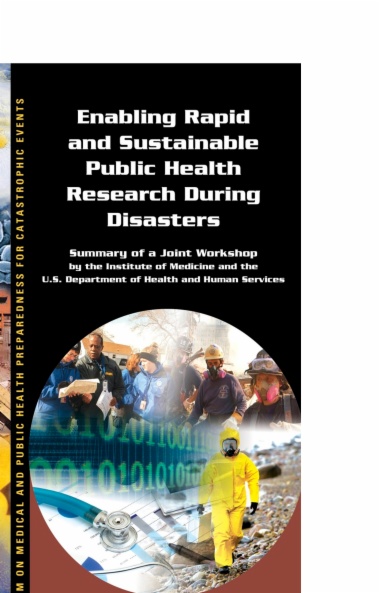

Over the past decade, preparedness and response capacities of government agencies, hospitals and clinics, public health agencies, and academic researchers in the United States and abroad have been challenged by a succession of public health emergencies, ranging from radiological threats to pandemics to earthquakes. Through After Action Reports, each of these emergencies has yielded important information and lessons learned that can inform future disaster response and recovery efforts. However, important information that needs to be collected during and immediately following these emergencies is often missed because of barriers and obstacles to gathering such data, such as varying institutional review board restrictions in different states, no sustainable funding network for this type of work, uncertainty on who should be involved in research response, and a lack of knowledge around how best to integrate research into response and recovery frameworks.
Taking action to enable medical and public health research during disasters was the focus of a workshop held on June 12 and 13, 2014, coordinated and supported jointly by the Institute of Medicine Forum on Medical and Public Health Preparedness for Catastrophic Events, National Institute of Environmental Health Sciences, the National Library of Medicine, the U.S. Department of Health and Human Services' Office of the Assistant Secretary for Preparedness and Response, and the Centers for Disease Control and Prevention. Invited speakers and participants from federal, state, and local government, academia, and community and worker organizations came together to discuss how to integrate research into existing response structures; identify critical research needs and priorities; identify obstacles and barriers to research; discuss structures and strategies needed for deployment of a research study; share ideas, innovations, and technologies to support research; and explore data collection tools and data-sharing mechanisms for both rapid and longitudinal research. Enabling Rapid and Sustainable Public Health Research During Disasters summarizes the presentations and discussion of the workshop.